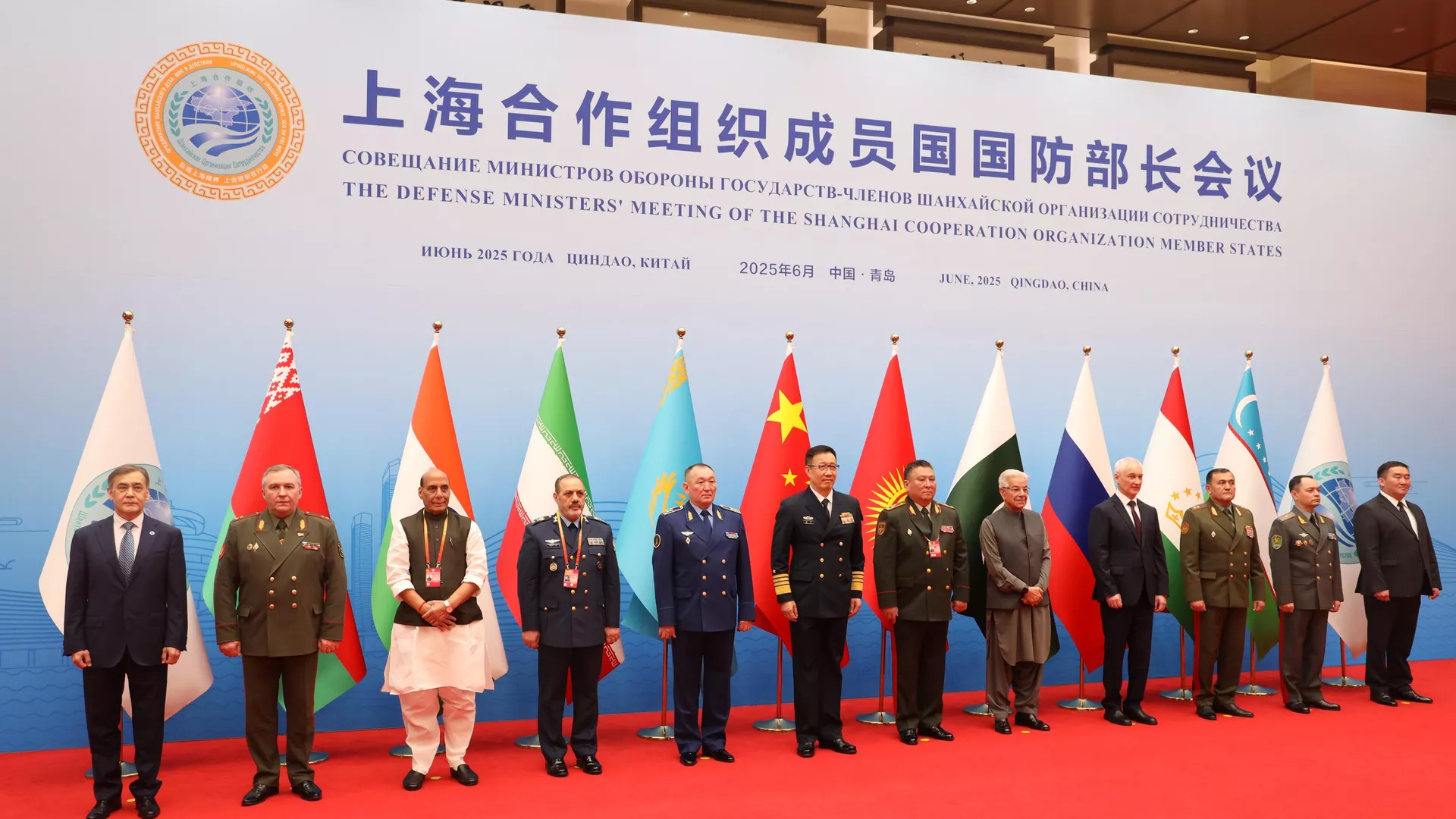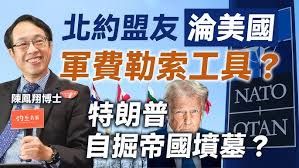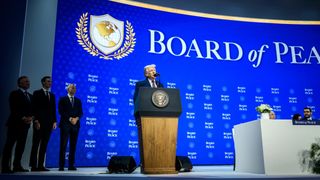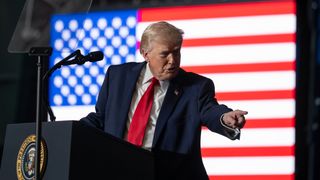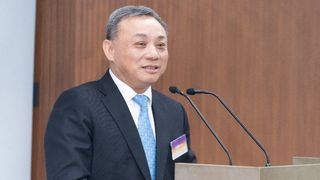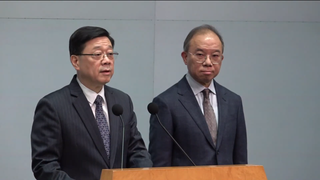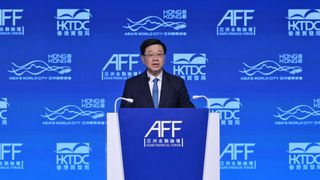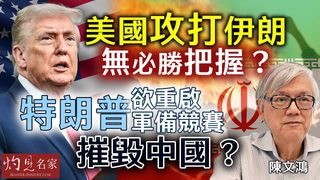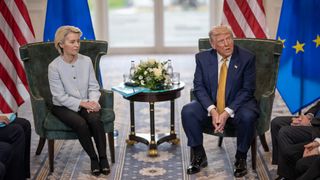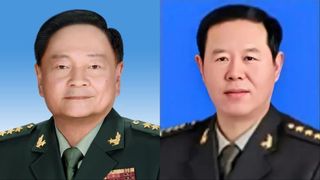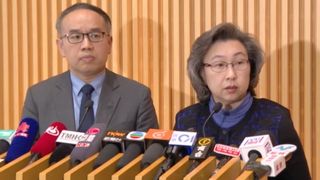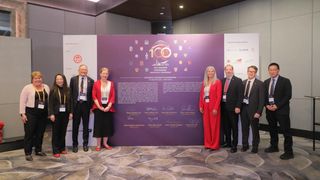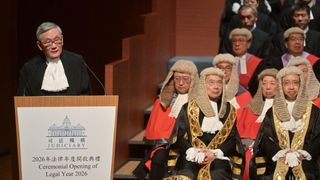6月25日至26日,上海合作組織成員國國防部長會議在青島舉行,儘管上合組織為成員國討論共同關心的問題提供了有益的平台,但對緩和近期印巴衝突的緊張氣氛卻有所局限。
作為東道主,中國國防部長董軍主持會議並發表講話,他說世界政治正處於動盪轉型時期,霸權霸道霸凌行徑嚴重衝擊國際秩序,上合組織發揮穩定錨作用至關重要。中方願同各成員國防務部門堅守上合初心,凝聚上合力量,即維護國際公平正義,應對安全問題和挑戰,促進國防安全領域長期穩定合作,支持成員國團結互信,促進和平、繁榮、發展、睦鄰友好。
董軍:上合組織應團結應對挑戰
董軍續稱,當今世界單邊主義、保護主義逆流滋長,呼籲所有成員國團結起來應對挑戰。他並補充,中國願與上合組織成員國攜手合作,為維護共同命運作出貢獻,推動防衛安全合作取得新進展。
公安部部長王小洪提出5點建議:一是踐行真正的多邊主義,為應對全球性挑戰提供「上合方案」;二是堅持安危共擔,築牢防範域外勢力干涉的「上合防線」;三是聚焦共同關切,提升地區反恐工作的「上合能力」;四是健全合作機制,完善打擊新型跨國犯罪的「上合平台」;五是深化交流互鑒,為構建人類安全共同體提供「上合經驗」。
新華社報道稱,與會各國一致同意繼續加強戰略溝通,並推動務實合作,共同促進區域和平安全。
俄羅斯防長別洛烏索夫在與董軍的會晤中表示,各成員國應加強合作,共同打擊來自敘利亞、阿富汗、烏克蘭等地的恐怖分子。他也表示,成員國應進行聯合演習和訓練,演練多種軍事行動方式,分享經驗和成熟的軍事作戰模式。
別洛烏索夫續稱,在兩國元首的領導下,俄中一直致力於合作,促進世界和平。他並稱,俄中正在落實兩國先前達成的協議。
白俄羅斯國防部長赫列寧向中國媒體表示,面對新型武器和新威脅的出現,上合組織國家應該考慮建立新的集體安全體系。
伊朗、巴基斯坦、烏克蘭、塔吉克、哈薩克、吉爾吉斯、印度等國國防部長出席會議。
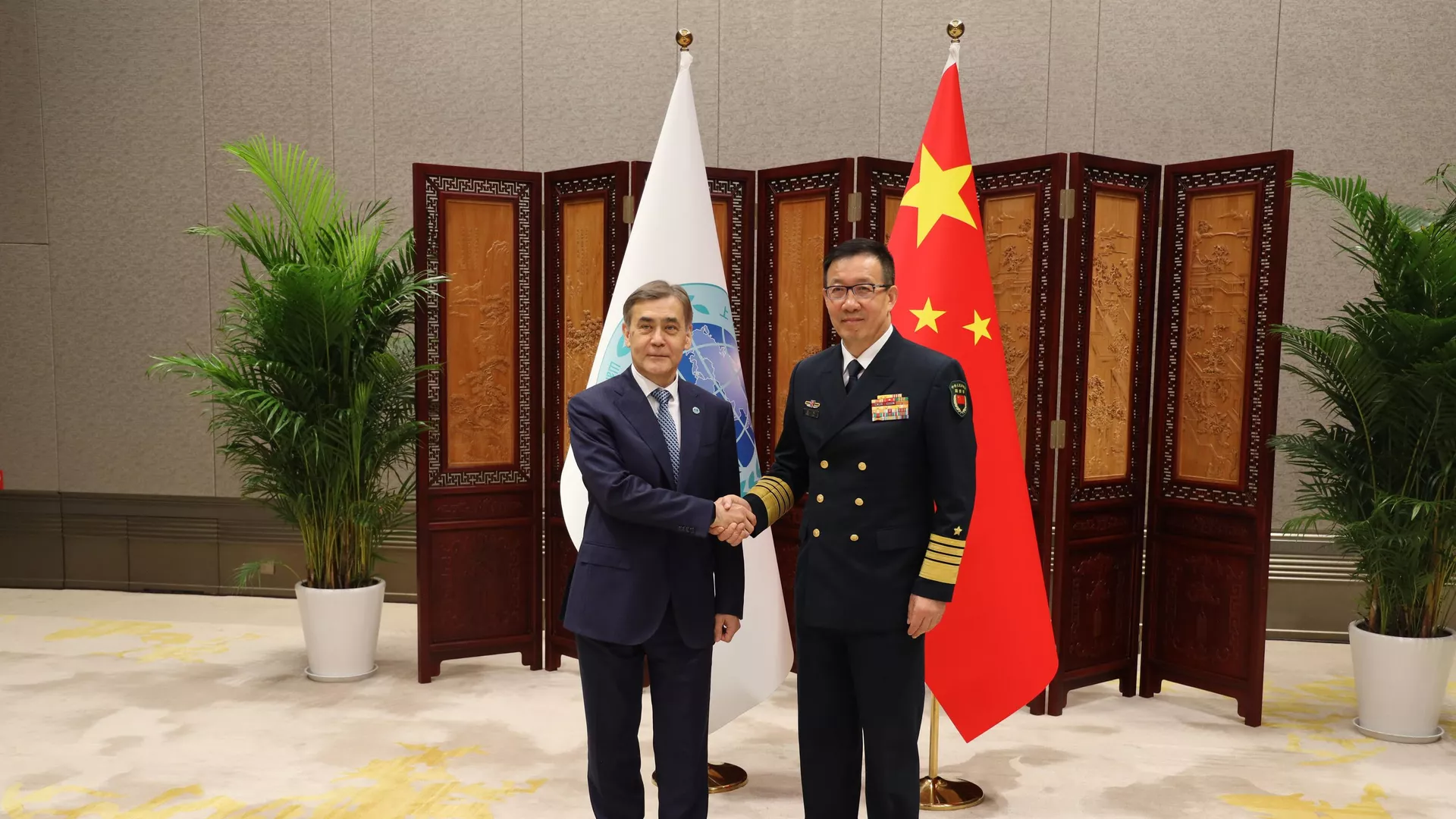
伊朗冀中方續促進中東和平
伊朗與以色列停火後不久,伊朗防長納西爾扎德出席了上合組織會議。他向董軍表示,伊朗感謝中方的正確立場和理解,希望中國繼續致力於促進中東和平,並在緩解該地區緊張局勢方面發揮更積極的作用。
印度和巴基斯坦國防部長雖然出席了上合組織會議,但雙方並未達成任何共識,也沒有發表任何联合聲明。
據報道,印度防長辛格提出了四點方案,以緩解緊張局勢並改善與中國的關係,包括(1)遵守2024年脫離接觸計劃;(2)持續努力緩和緊張局勢;(3)加速實現邊界劃界和劃界目標;(4)利用現有特別代表機制籌備新的談判並管控意見分歧。
近年來,中印雙方一直利用高層軍事對話和會談來解決邊境地區的爭端。雙方軍隊均已從一些爭議地區撤軍,同時成功地開闢出緩衝區,以維護和平。
印度指中國偏袒巴基斯坦
然而,辛格拒絕簽署上合組織峰會發表的聯合聲明,因為在印度看來,該文件沒有提到帕哈爾加姆襲擊事件,表明中國偏袒巴基斯坦。
據印度傳媒稱,上合組織文件提到俾路支省,是「暗中指責印度在該省製造動亂」。巴基斯坦聲稱印度支持俾路支省的一些武裝組織,強調俾路支問題是巴基斯坦的內政。
作為上合組織的成員國,印巴無法解決領土問題上的分歧,這證明了上合組織的局限性。
上合組織會議期間,辛格不點名批評巴基斯坦,稱一些國家利用跨境恐怖主義作為政策工具,為「恐怖分子」提供庇護。
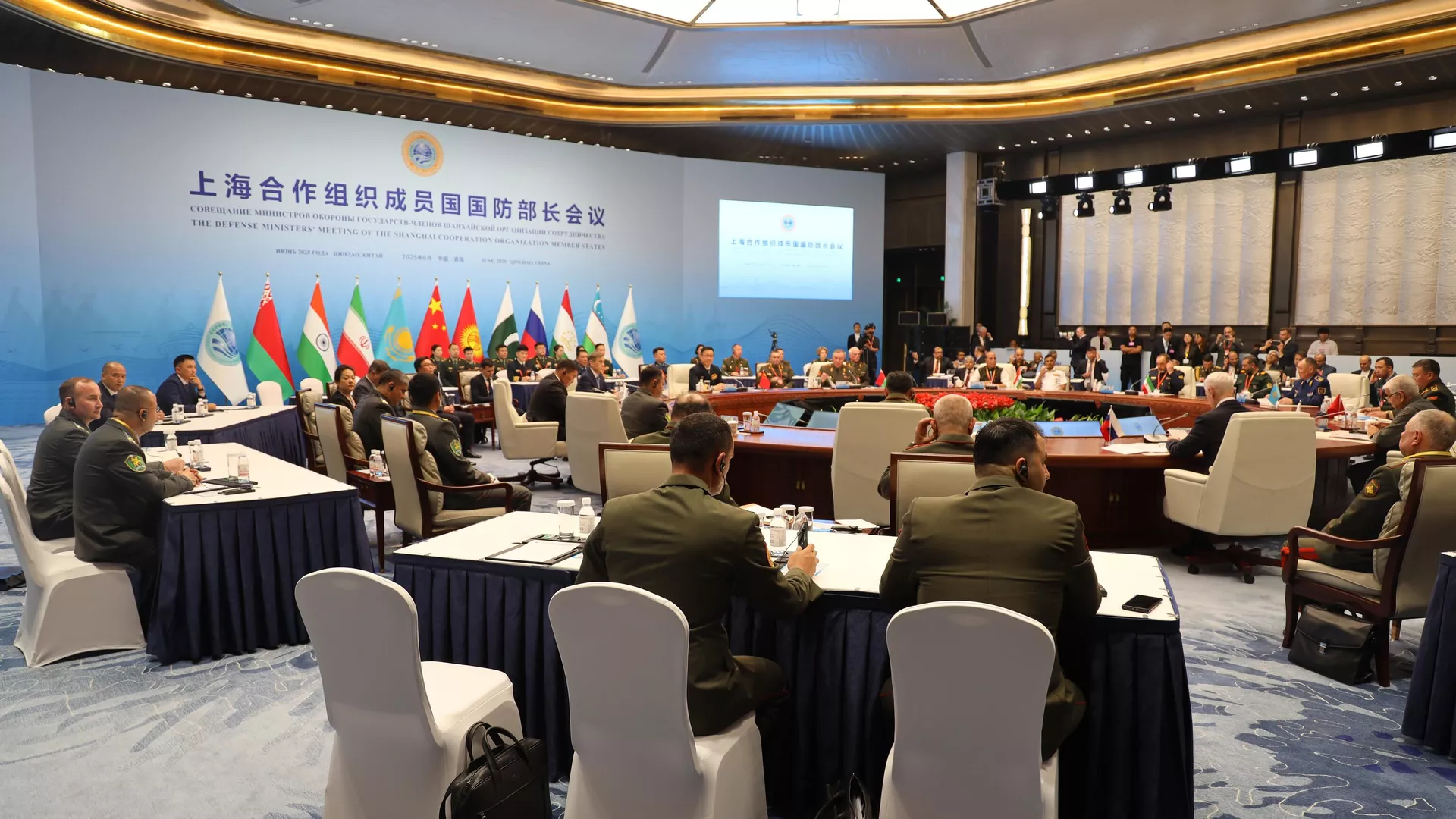
巴方籲解決克什米爾、巴勒斯坦爭端
巴基斯坦國防部長阿西夫表示,該國致力於實現區域穩定、集體安全和反恐合作,他譴責最近以色列攻擊伊朗和在加沙持續犯下的暴行,以及在查謨和克什米爾地區發生的恐襲攻擊,而俾路支省爆炸事件是跨境恐怖主義破壞地區和平的又一例證。
巴基斯坦認為,查謨和克什米爾受印度非法控制。
阿西夫呼籲和平解決包括克什米爾和巴勒斯坦在內的長期全球爭端,重申該國堅定維護《聯合國憲章》和《上合組織憲章》的原則。
儘管上合組織無力解決印度和巴基斯坦之間的領土和政治爭端,但一些中國軍事專家指出,上合組織與5月底在新加坡舉行的香格里拉對話會有所不同。中國人民解放軍少將、國防大學副校長胡剛峰回應稱,美國國防部長赫格塞斯的言論「破壞了亞太地區的穩定」,因為赫格塞斯公開呼籲對所謂的中國在該地區侵略行為進行集體威懾。
香格里拉對話反華 上合開放包容
中國國防大學軍事專家張弛稱,上合組織雖然開放包容,但由美國和西方國家主導的香格里拉對話會卻故意提出一些敏感和有爭議的問題。儘管香格里拉對話會傾向反華,但由中國主辦的上合組織必須營造出不同的友善氛圍。
總而言之,儘管上合組織仍然是其成員國(尤其是一些支持中俄的國家)加強安全合作、促進和平的重要且有益的平台,但印巴兩國爭端尚未解決。儘管如此,上合組織仍為成員國的防長提供了一個互動的平台。與由美國及其盟友主導、傾向在軍事和意識形態上針對中國的香格里拉對話不同,上合組織自然是一個更加和諧的平台,中國可以藉此與其他友好成員國加強安全合作、反恐政策、發展議程以及和平倡議。
The Shanghai Cooperation Organization and International Politics
Judging from the way in which the Defence Ministers’ Meeting of the Member States of the Shanghai Cooperation Organization (SCO) was held in Qingdao from June 25 to 26, the SCO has provided a useful forum for its members to discuss matters of common concern, but it faces a limitation in dealing with the recent conflicts between India and Pakistan.
The Chinese Defence Minister Dong Jun hosted the meeting and delivered an address, saying that it is important for the SCO to play a stabilising role amid the turbulence and transformation of world politics. Dong added that China is willing to work with all other member states together to promote the SCO spirit, namely to defend international justice and fairness, to address security issues and challenges, to promote steady and long-term collaboration in defence and security, to support solidarity among members, and to promote mutual trust, peace, prosperity, development and good neighbourliness.
According to Dong, the world is witnessing the rise of unilateralism, protectionism and hegemonism. He appealed to all member states to be united to cope with the challenges from unilateralism, protectionism and hegemonism. China, to Dong, is eager to cooperate with SCO member states to contribute to their common destiny and to make progress in cooperative defence and security.
The Chinese Public Security Minister Wang Xiaohong proposed a five-point plan for SCO members, including (1) the practice of multilateralism, (2) the tackling of global challenges, (3) the deepening of counter-terrorism capabilities, (4) the enhancement of regional cooperation, and (5) the promotion of a global security community.
Xinhua reported that all the participating states agreed to continue to strengthen their strategic communication, promote pragmatic collaboration, and to work together to promote regional peace and security.
The Russian Defence Minister Andrey Belousov said in the meeting that all member states should consolidate cooperation to fight against the terrorist elements that stemmed from places like Syria, Afghanistan, and Ukraine. He added that member states should conduct joint exercises and training to practise multiple ways of military actions, thereby sharing their experiences and their sophisticated military-fighting modes.
Belousov informed Dong Jun that Russia and China, guided by their Presidents, have been cooperating to promote world peace. Belousov added that both countries are implementing the previous agreement reached by Moscow and Beijing.
The Defence Minister of Belarus, Viktor Khrenin, told the Chinese media that, in face of the emergence of fresh style of weapons and new threats, SCO countries should consider building up a new collective security system.
Other defence ministers from Iran, Pakistan, Ukraine, Tajikistan, Kazakhstan, Kyrgyzstan, and India attended the meeting.
Iran’s Defence Minister Abbas Araghchi attended the SCO meeting shortly after a ceasefire between Iran and Israel. He met Dong Jun briefly and told Dong that Iran was grateful to China for its “correct position” and understanding. Araghchi added that Iran hopes for China’s continuous work to promote peace in the Middle East and to play a more active role in reducing the tense situation in the region.
Although the Defence Ministers from India and Pakistan attended the SCO meeting, both sides did not reach any consensus. They did not issue any joint declaration.
It was reported that the Indian Defence Minister Rajnath Singh suggested a four-point formula to Dong Jun during the SCO meeting for the sake of easing tensions and improving relations with China (India Today, June 27, 2025). The four-point formula includes (1) adherence to the 2024 disengagement plan, (2) continuous efforts at de-escalating tensions, (3) accelerating efforts to achieve the goals of demarcation and delimitation at the borders, and (4) using the mechanism of existing special representatives to prepare new discussions and to manage opinion differences. In recent years, both India and China have been utilising high-level military dialogue and discussions to resolve their disputes over the border regions. Both militaries have retreated from some disputed areas while carving out a buffer zone quite skilfully and successfully to maintain peace.
However, Rajnath Singh refused to sign a joint statement issued at the SCO Summit, because, in the eyes of India, the document skipped mentioning of the Pahalgam attack – an indication that New Delhi believed represented a move by China to be “biased” in favour of Pakistan (India Today, June 26, 2025). The Indian news said that the SCO document mentioned Balochistan, which represented “a veiled attempt to accuse India of creating unrest in the Pakistani province” (India Today, June 26, 2025). Pakistan has claimed that India supported some armed groups in Baloch – a claim that India responded by saying the Baloch issue belongs to Pakistan’s internal affairs.
Both India and Pakistan as members of SCO could not resolve their differences over territorial issues – a testimony to the limitation of the SCO although it provides a useful forum for the defence ministers of member states to interact with each other.
During the SCO meeting, Singh launched an attack on Pakistan without naming it, saying that some countries were utilising cross-border terrorism as an “instrument of policy” to provide shelter to “terrorists” (India Today, June 26, 2025).
Pakistan’s Defence Minister Khawaja Muhammad Arif said in the SCO meeting that Pakistan is committed to achieving regional stability, collective security, and counterterrorism cooperation (“SCO refuses to toe India line,” Reuters, June 26, 2025, printed in The Express Tribune, June 28, 2025). He condemned Israel’s recent military actions against Iran and the continuous violence in Gaza while calling for peaceful resolutions to deal with long-standing global disputes, including Kashmir and Palestine. Emphasising the SCO as a platform for dialogue, Arif appealed to member states to enhance mutual trust and regional cooperation. He added that Pakistan is committed to the principles of the UN Charter and SCO Charter. Arif condemned the recent terrorist attacks in India’s “illegally occupied Jammu and Kashmir,” urging the international community to hold those who engaged in such attacks accountable. He referred to the bombing in Balochistan as “another example of cross-border terrorism undermining regional peace.”
While the SCO could not help solving the territorial and political disputes between India and Pakistan, a few Chinese military experts have pointed to a difference between the SCO and the recent Shangri-La Dialogue that was held in Singapore in late May. A major general of the People’s Liberation Army, Hu Gangfeng, who is also the vice president of China’s National Defence University, responded to US Defence Secretary Pete Hegseth’s remarks as “destabilising the Asia-Pacific region,” because Hegseth openly called for collective deterrence against the so-called Chinese “aggression” in the region.
Zhang Chi, a military expert at the Chinese National Defence University, commented that while SCO is “open” and “inclusive,” the Shangri-La Dialogue that was led by the US and Western countries tended to “intentionally” raise “some sensitive and disputed issues” (Global Times, June 26, 2025). Indeed, while the Shangri-La Dialogue tended to be anti-China, the SCO hosted by China must foster a different friendly atmosphere. While SCO is led by China and Russia with support from their allies, the Shangri-La Dialogue remains a pro-Western organisation that is relatively more anti-China.
In conclusion, while the SCO remains an important and a useful platform for its member states, especially some countries supportive of China and Russia, to enhance their security cooperation and promote peace, both India and Pakistan have not yet resolved their disputes. Still, the SCO provides a platform for defence ministers of the member states to interact with each other. Unlike the Shangri-La Dialogue which has been led by the US and its allies and which tends to target at China militarily and ideologically, the SCO is naturally a far more harmonious platform for China to enhance its security collaboration, counterterrorism policy, developmental agenda and peaceful initiative with other friendly member states.
原刊於澳門新聞通訊社(MNA)網站,本社獲作者授權轉載。(原文按此)





